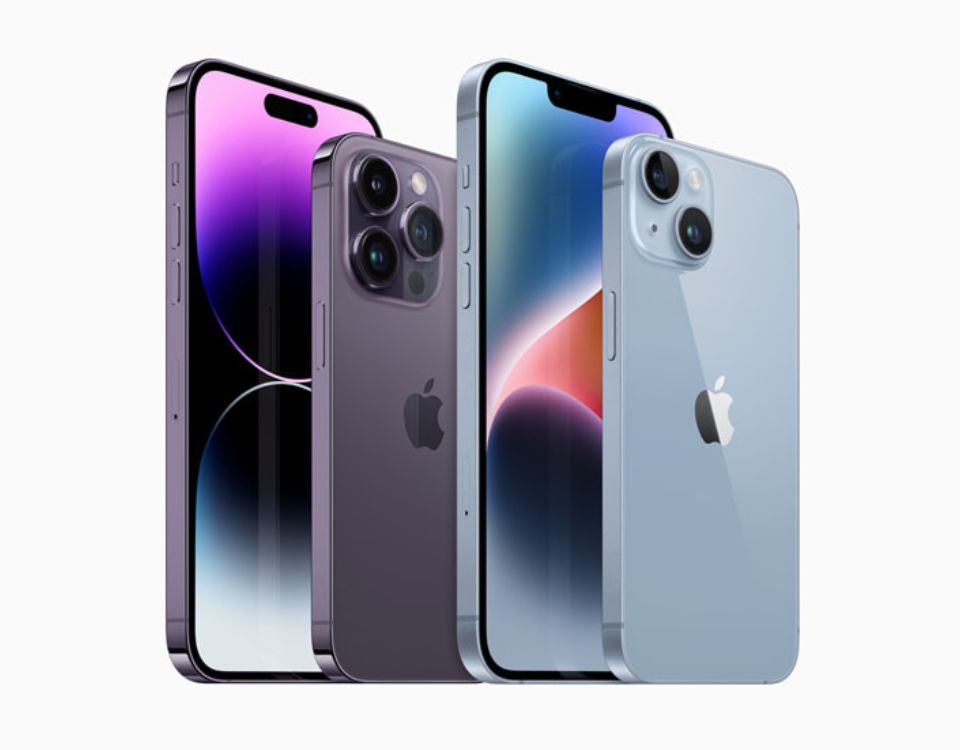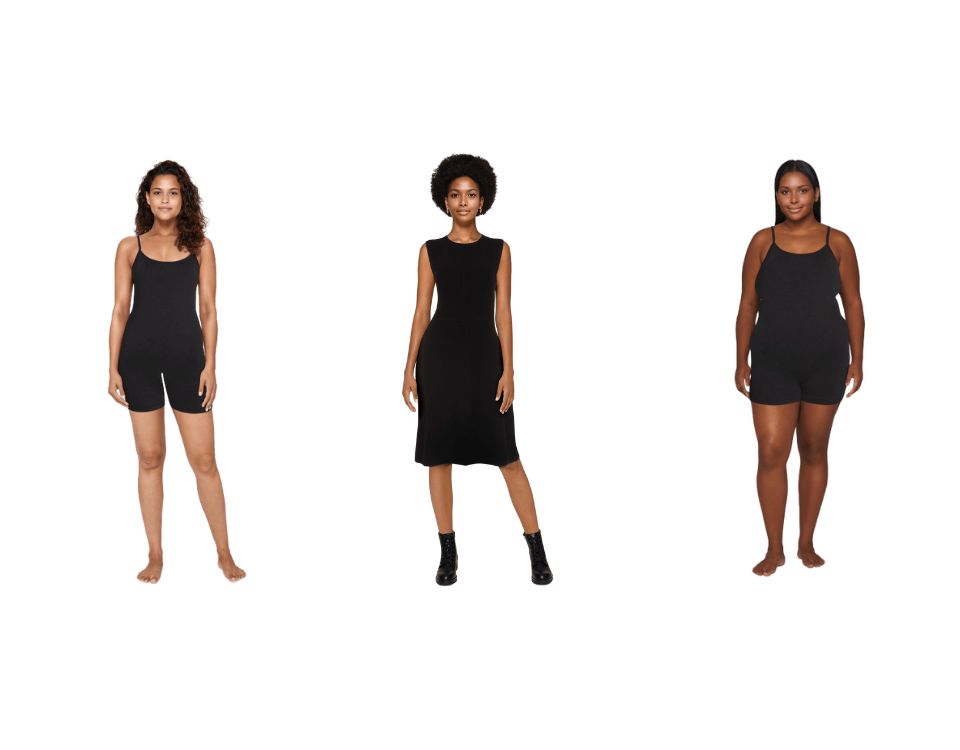It’s not uncommon for big brands and companies to launch lawsuits against anyone who threatens their profitability. But in a time where we are actively pursuing sustainable means to heal the planet and move towards a more sustainable future, it’s quite disappointing to see two renowned brands, Lululemon and Peloton, fussing over the intricate details of a strappy bra. We look into Lululemon-Peloton lawsuit and the innovative remedies the latter brand can incorporate in its practices.
Lululemon-Peloton lawsuit: What Happened?
Lululemon Athletica Inc., a famous Canadian athletic-wear brand, filed a lawsuit against the NY-based exercise equipment manufacturer Peloton Interactive, Inc. over copyright infringement of six of its design patents.
They say nothing happens overnight and it is essentially true in this case. Back in 2016, Peloton, a brand notable for its high-end exercise bikes that help you get in shape with curated workouts, entered into a partnership with Lululemon, an athletic apparel brand that built its fitness product lines over the years.
Under the agreement that lasted for about five years, Peloton would purchase Lululemon’s fitness apparel in bulk at a wholesale price and add its own logo to the products, helping both brands serve the fitness niche in harmony. But it wasn’t meant to be, and a few months back, the partnership came to an end, which Peloton described in court documents for Lululemon-Peloton lawsuit as “burdensome and time-intensive“, leading the tech company to work on its own fitness apparel.
In September, Peloton launched its own fitness clothing line that Lululemon claims bears a striking and uncanny resemblance to six of its own product designs.
Lululemon sent a “cease-and-desist” letter voicing its concern for the equipment manufacturer’s imitation of the company’s designs and, instead of a direct response to those allegations, received a request to delay further communication. While Lululemon waited for a resolution, Peloton filed a pre-emptive lawsuit against Lululemon, requesting a U.S. court to declare the allegations baseless.
Who’s Wrong, Who’s Right In The Lululemon-Peloton Lawsuit?
The final decision for the Lululemon-Peloton lawsuit will come from the courts, but if we look into the situation, it’s not very hard to assess the solidity of Lululemon’s claims. First, it’s important to note that Lululemon has been in the fitness apparel business since 1998 and currently has 491 stores worldwide. Peloton has been an equipment manufacturer since 2012, with most of its product lines centered around equipment. The company launched its own fitness product line this year in September, but it has sold fitness apparel through different partnerships, including the one with Adidas.
Lululemon’s decade of experience in the fitness apparel market is a testament to the company’s commitment to research and development. While Peloton seemed to have rushed into launching its own fitness apparel after shortly ending its agreement with Lululemon. Peloton may not stand much of a chance as the two product lines do bear a striking resemblance. See the images below:
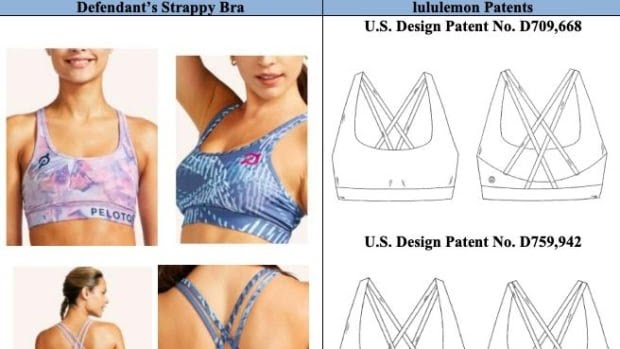
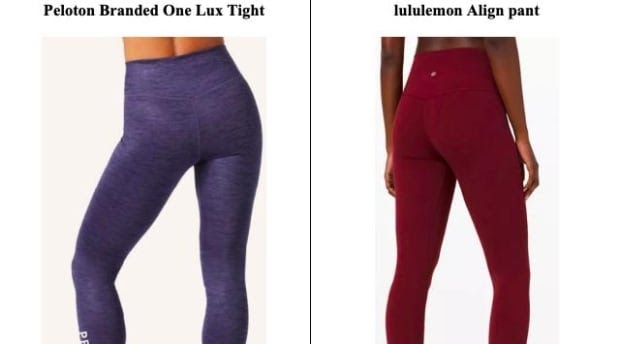
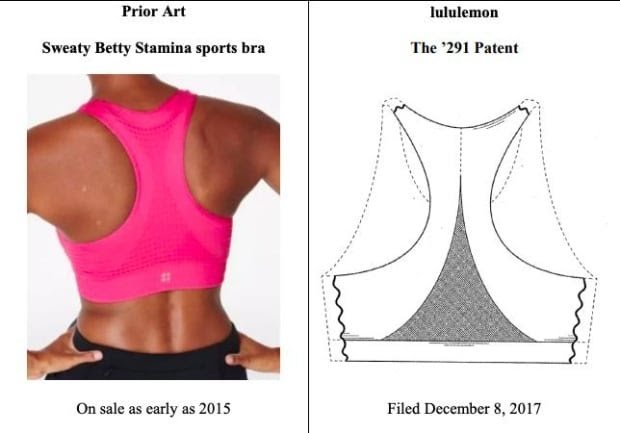
Images/@cbcnews
Dear Peloton: Here’s What You Can Do
Innovation is the go-to tool for almost every fashion brand; without the essential innovation, it’s impossible to survive in any market, including fitness. Here are a couple of things we believe, Peloton, you can do to innovate business and expand to different niches.
Sustainability: Create Natural Sustainable Materials
Young people support sustainability and the apparel and fitness brands leading the change in sustainable practices. PANGAIA has launched its own innovative fabrics made entirely from fruits and veggies, and Hyundai Motors repurposed vehicle materials into sustainable clothing.
Currently, Peloton apparel uses materials like Elastane and Polyester, which are harmful for the environment. The company could look into sustainable fitness apparel that doesn’t pollute and gain a competitive edge over Lululemon and other fitness apparel brands that have yet to innovate in this area.
Consider A Smart Activewear Line
Apart from looking into developing its own sustainable fabrics, Peloton could look into smart clothing that gathers more data about its users’ health; hence, opening doors for more opportunities to help customers stay fit. Smart clothing can do a lot for fitness enthusiasts. For example, Ralph Lauren’s air-cool jackets kept Team USA cool at the Tokyo Olympics, and the brand’s PoloTech t-shirts connect to the user’s smartphone through an app to record fitness activity. Peloton could design a smart activewear line that records lifestyle habits and recommends workouts based on lifestyle. Peloton’s smart clothing could also include self-heating socks, knee, and joint warmers to help users reduce the likelihood of injuries during cycling sessions.
Consider Digital Activewear Line
Tech is Peloton’s key ingredient. The company could use innovative solutions to improve its UI/UX. Peloton could pair with digital apparel companies, including Dress X or The Fabricant to create a digital activewear line. When cyclists reach certain milestones, they could get their personalized badges and uniforms cast upon them through the screen. This could add a layer of augmented reality to the user’s overall experience and incentivize their current milestones.
App Improvements: Upgrade The App For In-depth Health Analytics
Peloton has made significant strides in making innovative hardware decisions for its bikes, including the magnetic resistance system, the feel of the resistance knob, and the power transmission belt drive. However, the company has a lot of room to expand. Through user data collected from its app, Peloton could provide users with health-and-fitness-specific data that isn’t possible through a simple smartwatch. For example, in addition to data regarding speed, distance and calories burned, the company could incorporate specific diets that would go with the users’ specific fitness journey and help them eat right to achieve their target weight or fitness goal.
Additionally, Peloton could use the in-depth user data to build highly personalized training sessions with instructors. Moreover, this user data could be shared with insurance companies to help Peloton customers take care of their fitness at a deeper level. If Peloton can partner with insurance companies for discounted premiums, it could create a hard-to-resist opportunity for new Peloton customers.
Fitness is a huge niche, so there is a way to reconcile and innovate together for the bigger goal: sustainability. In fact, if brands work together towards sustainability, we all win.





